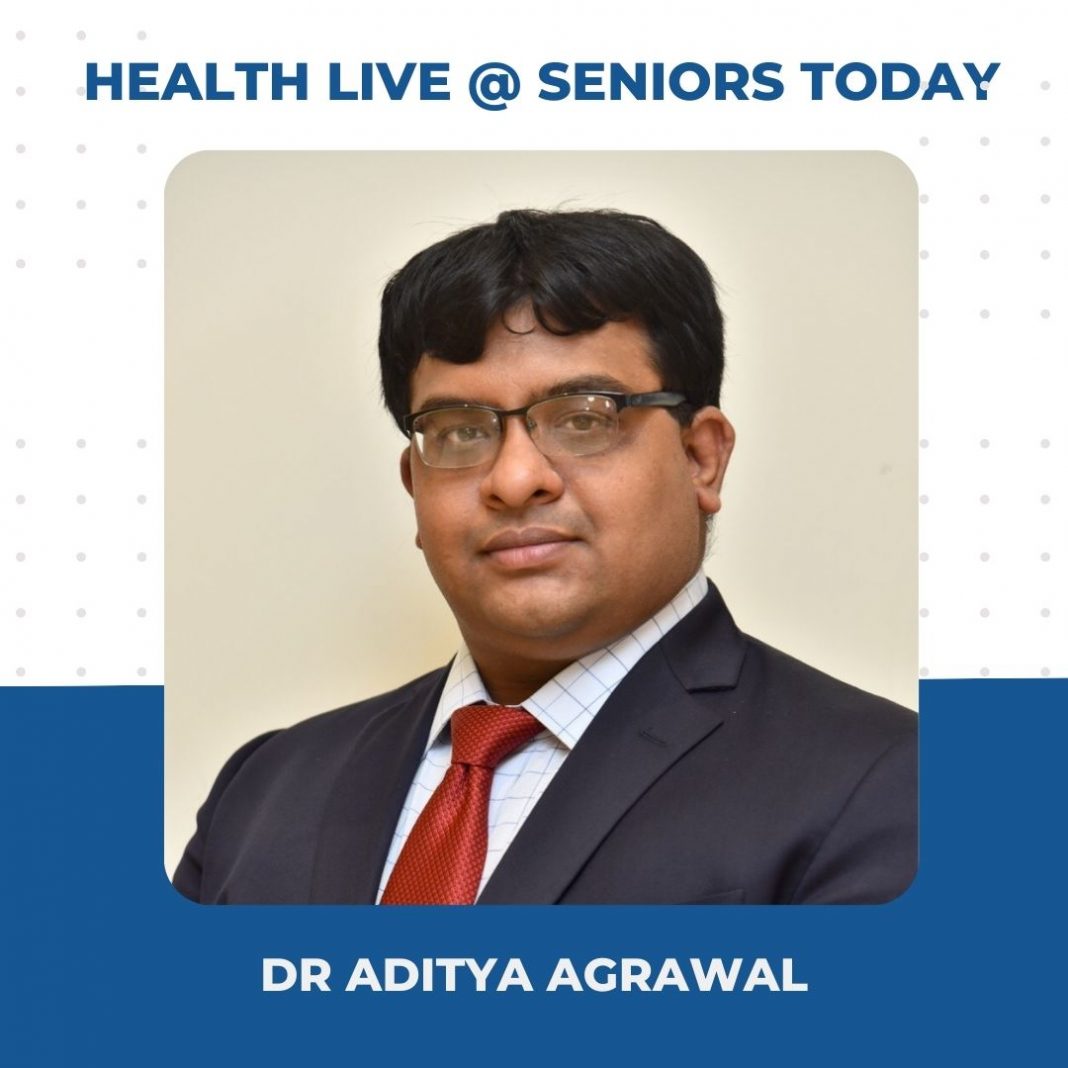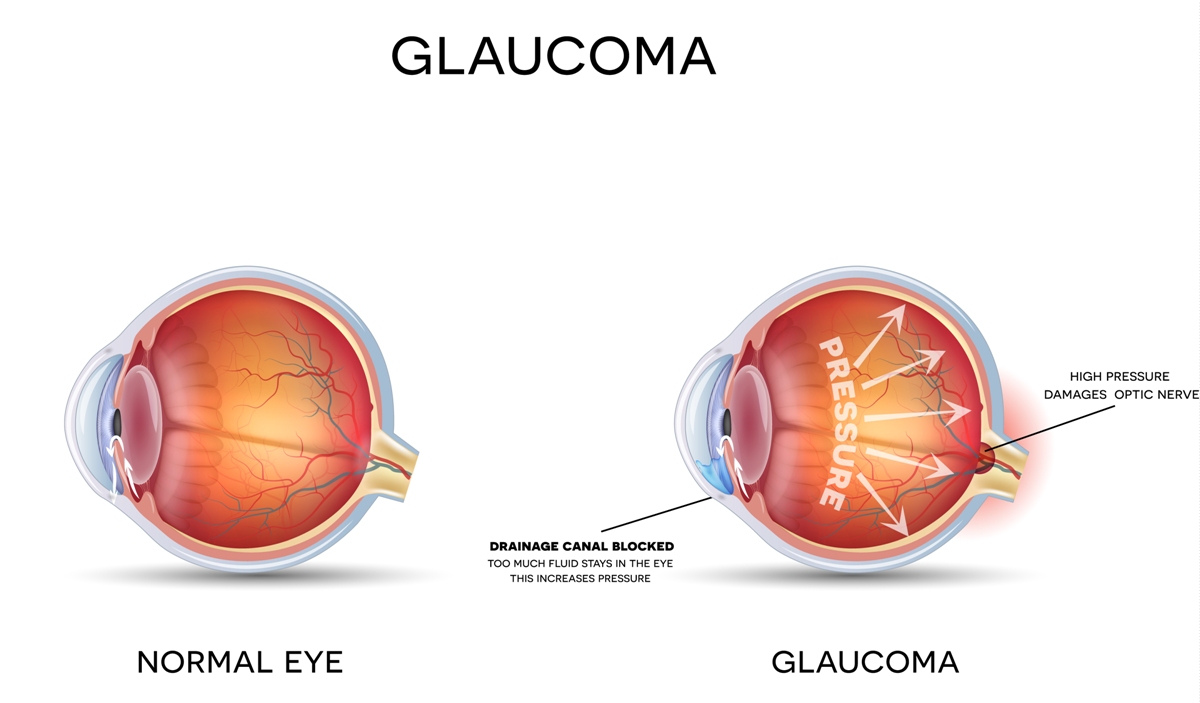On May 8, Seniors Today hosted its weekly Health Live webinar and were delighted to welcome again Dr Aditya Agrawal, who shed light on and busted the myths around covid care.
Dr. Aditya Agrawal is a leading Consultant Pulmonologist attached to several large hospitals in Mumbai. He is extensively trained in respiratory diseases both in India and New York. His special interests are in difficult-to-treat cough, asthma, and bronchitis and lung fibrosis. He is a dedicated researcher and a peer influencer in the management of respiratory diseases.
The difference between the first wave in 2020 and the lethal second wave that we are facing in 2021 is that last year a lot of patient admissions were done out of fear, due to lack of knowledge – but this is not happening now.
Today, if we admit a patient to the hospital it is only when the patient needs the infrastructure and facilities in a hospital to get better, otherwise the rest of the patients are treated at home. Last year the number of positive patients was limited, this year the number has increased manifold because it is not just a single member of the family that is infected now. It is the entire family that is testing positive.
The double mutant virus, even though we don’t know much to comment upon it right now, they seem to be more virulent.
Vaccines are extremely important. If you are in a room with 10 people in it. Out of which 2 have received the vaccine. Amongst the other 8, 1 is infected and passes the infection to the rest. These 8 individuals also also transmit the virus to the other 2 who have received the vaccine. The chances of someone getting the vaccine and then getting infected is 40% (after receiving both the doses). The efficacy of the vaccine is 60% when spread 4-8 weeks apart.
Now, if 8 people are vaccinated, the chances of the 2 individuals getting infected also drops. This is called herd immunity. Once you reach the level of herd immunity the propagation of infection stops.
We have currently vaccinated less than1% of the population, once we reach 70-80% we will see a halt in the propagation of the coronavirus infection.
You treat the covid infection like any other viral infection which means you treat the symptoms.
If you are running a fever – you treat the fever
- Take correct medication
- Keep your body cool
- Take cold water showers
- You do not take warm/ hot water
- You do not wrap yourself in blankets
Management of covid:
- Observe your symptoms and your vitals
- Oxygen saturation does not usually drop until the 7-8th day, if it ever will
- Do not ignore your symptom of fever. Any fever that a patient has, should be screened under the lens of covid.
- Drugs such as Doxycycline, azithromycin, ivermectin, etc. that you must have heard of have not been proved to be effective in the trials that are being heard across the world.
- Remdesivir, steroids and anti-coagulant (blood thinners) – are drugs that have been known to help.
Remdesivir is not finding as much traction across the world, because the US FDA only determines the need for a medicine if it reduces mortality/ death of a patient.
Remdesivir should be used for its anti-viral properties. When used early, appropriately, it prevents severe disease.
Steroids must not be given in the first 7 days of the infection which ends up flaring up the viral infection. Steroids should be used in patients who have low oxygen saturation levels.
Blood thinners/ anticoagulants that are being given at the moment prevent venous clots. Aspirin, which is another anti-coagulant we all know prevents aggregation and clumping of platelets. Do not ask your doctor for Aspirin when you don’t need one. It is not pertinent in the management of covid.
An oxygen saturation of 97% is acceptable. A saturation of 96% or below is a matter for concern. The oxygen levels are dropping gradually, you have time. When your oxygen levels start dropping, your doctor will prescribe you steroids and or anticoagulants depending on the need of the patient
If you have taken the first dose and then concurred the infection, you count down to 6 weeks from when you had the first symptom and then take the vaccine based on that.
Home quarantine means the following:
- You stay put in your room, without contact with any members of the family.
- Avoid activities that might lead to spread of the virus.
- Do not expect your family members to clean your clothes of utensils.
- Avoid going in the common areas and if and when you do, wear a mask.
- Maintain social distancing even at home
If you have taken the first dose of the vaccine and due to shortage of vaccines have to wait for longer than the stipulated 4-6 weeks, it is nothing to worry about.
In fact, Dr Agrawal says that there is research which tells us that the efficacy of the Covishield vaccine increases to 78% by just spacing your vaccine 12 weeks apart.
A negative rapid antigen test does not rule out covid. But a positive RAT for Covid-19 means that you have the infection. A negative RAT for Covid-19 should be followed by RT-PCR. Its efficacy is also 70-78%. The tests are being performed only to supplement the diagnosis.
You can reach out to Dr. Agarwal through his secretary Mrs. Pawar at +91 79772 66729 or reach out to Dr. Agarwal at his Clinic +91 22 2366 4455




